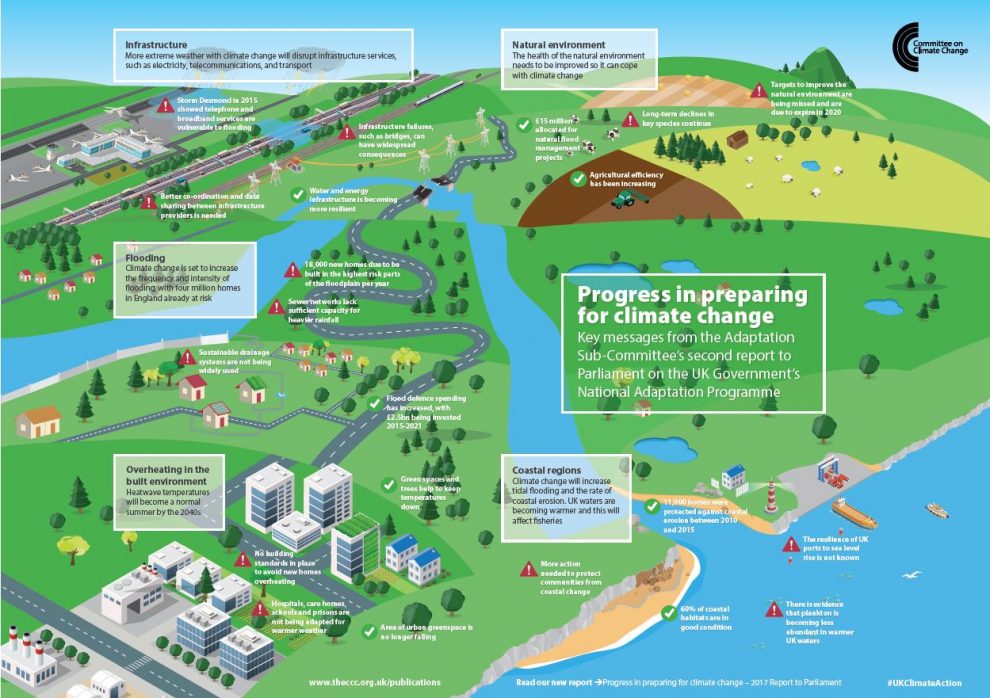A new study finds climate change skeptics are more likely to behave in eco-friendly ways than those who are highly concerned about the issue.
Do our behaviors really reflect our beliefs? New research suggests that, when it comes to climate change, the answer is no. And that goes for both skeptics and believers.
Participants in a year-long study who doubted the scientific consensus on the issue “opposed policy solutions,” but at the same time, they “were most likely to report engaging in individual-level, pro-environmental behaviors,” writes a research team led by University of Michigan psychologist Michael Hall.
Conversely, those who expressed the greatest belief in, and concern about, the warming environment “were most supportive of government climate policies, but least likely to report individual-level actions.”
Sorry, I didn’t have time to recycle—I was busy watching a documentary about the crumbling Antarctic ice shelf.
‘Third-party’ auditor investigating Minnesota fraud received millions in state Medicaid funds
Macron vows nuclear arsenal boost as Europe turns to nukes amid rising global threats
‘Under siege’: Inside the growing radical Islam threat critics say is hiding in plain sight in deep red Texas
Walz-Ellison administration ‘enabled’ Minnesota’s fraud scandal: Guy Benson
NYC Dept of Education employee arrested, charged with murder of Bronx father
Savannah Guthrie returns to ‘Today’ show studio for first time since mother went missing
Iran widens regional war with first strike into Azerbaijan
5 House Oversight Committee Republicans Join with Democrats to Subpoena Pam Bondi in Epstein Probe
As Jasmine Crockett Concedes Texas Senate Primary, Attention Focuses on Radical Dem Who Beat Her
Tom Emmer calls for Tim Walz, Keith Ellison to ‘serve jail time’ if fraud coverup allegations are true
Republican Rep Burgess Owens to retire from Congress when term ends
VIDEO: College Basketball Ref Knocked Out Cold When Players Turn Violent on Court
DOJ Ends Investigation Into Autopen Scandal With Zero Charges, Grand Juries, or Indictments
The ‘woo-woo’ philosophy of Trump’s surgeon general pick
Illegal’s dragging of ICE agent shows the exact danger the officer who shot Renee Good feared, expert says
The study, published in the Journal of Environmental Psychology, followed more than 400 Americans for a full year. On seven occasions—roughly once every eight weeks—participants revealed their climate change beliefs, and their level of support for policies such as gasoline taxes and fuel economy standards.
They also noted how frequently they engaged in four environmentally friendly behaviors: recycling, using public transportation, buying “green” products, and using reusable shopping bags.
The researchers found participants broke down into three groups, which they labeled “skeptical,” “cautiously worried,” and “highly concerned.” While policy preferences of group members tracked with their beliefs, their behaviors largely did not: Skeptics reported using public transportation, buying eco-friendly products, and using reusable bags more often than those in the other two categories.
This pattern was found consistently through the year, leading the researchers to conclude that “belief in climate change does not appear to be a necessary or sufficient condition for pro-environmental behavior.”
‘Third-party’ auditor investigating Minnesota fraud received millions in state Medicaid funds
Macron vows nuclear arsenal boost as Europe turns to nukes amid rising global threats
‘Under siege’: Inside the growing radical Islam threat critics say is hiding in plain sight in deep red Texas
Walz-Ellison administration ‘enabled’ Minnesota’s fraud scandal: Guy Benson
NYC Dept of Education employee arrested, charged with murder of Bronx father
Savannah Guthrie returns to ‘Today’ show studio for first time since mother went missing
Iran widens regional war with first strike into Azerbaijan
5 House Oversight Committee Republicans Join with Democrats to Subpoena Pam Bondi in Epstein Probe
As Jasmine Crockett Concedes Texas Senate Primary, Attention Focuses on Radical Dem Who Beat Her
Tom Emmer calls for Tim Walz, Keith Ellison to ‘serve jail time’ if fraud coverup allegations are true
Republican Rep Burgess Owens to retire from Congress when term ends
VIDEO: College Basketball Ref Knocked Out Cold When Players Turn Violent on Court
DOJ Ends Investigation Into Autopen Scandal With Zero Charges, Grand Juries, or Indictments
The ‘woo-woo’ philosophy of Trump’s surgeon general pick
Illegal’s dragging of ICE agent shows the exact danger the officer who shot Renee Good feared, expert says
Hall and his colleagues can only speculate about the reasons for their results. But regarding the concerned but inactive, the psychological phenomenon known as moral licensing is a likely culprit.
Previous research has found doing something altruistic—even buying organic foods—gives us license to engage in selfish activity. We’ve “earned” points in our own mind. So if you’ve pledged some money to Greenpeace, you feel entitled to enjoying the convenience of a plastic bag.
Regarding climate change skeptics, remember that conservatism prizes individual action over collective efforts. So while they may assert disbelief in order to stave off coercive (in their view) actions by the government, many could take pride in doing what they can do on a personal basis.
The results suggest that “changing skeptical Americans’ minds need not be a top priority for climate policymakers,” at least if their goal is inspiring individual action. Perhaps the more urgent task is to focus on people who already grasp the problem, and get them to align their actions with their concern.
Story cited here.
























